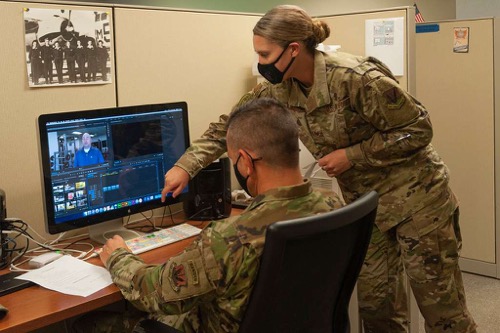
The Trump administration's illegal “termination” of the 2021 Digital Equity Act continues to have devastating real world impacts on everything from affordable broadband access to protecting Americans from skyrocketing online scams.
The $2.75 billion Digital Equity Act was passed by Congress as part of the 2021 infrastructure law. It mandated the creation of three different major grant programs intended to shore up equitable, widespread access to affordable Internet, while providing the tools and digital literacy education needed to help neglected U.S. communities get online.
But last May the Trump administration unceremoniously demolished the Act, froze all program funding, and left countless states, programs and organizations – many on the cusp of major new efforts – high and dry.
At the time, President Trump and GOP leaders like Sen. Ted Cruz disingenuously attacked the Act’s programs as “racist” and "unconstitutional,” – part of a broader effort to dismantle programs deemed as “DEI,” even in instances where the programs had little to nothing to do with race or gender. Many of the “covered populations” covered by the bill included rural residents, veterans, and elderly Americans from all walks of life.
Funding Freeze Puts Most Vulnerable Americans at Risk
The sudden "termination" of the popular law resulted in dozens of states having to abruptly cancel major broadband expansion plans. But the freeze has also been a massive problem for state programs that were taking aim at a U.S. online fraud epidemic proving particularly harmful to the U.S. elderly and marginalized communities.
Annual rates of elder fraud increased 14 percent from 2022 to 2023, culminating in $3.4 billion in losses – or around $30,000 per victim. A key component of the Digital Equity Act involved training vulnerable Americans to better navigate a scam-filled Internet.

Mamacítas Cibernéticas, a grassroots digital literacy organization in southern Doña Ana County, New Mexico, was dependent on Digital Equity Act funding to educate its bilingual community on cyber awareness. The head of that organization, Maria Chaparro, tells Fierce Network that Mamacítas Cibernéticas offers 91 classes to 47 participants in local housing authority and senior living center facilities.
Chaparro had applied for just $149,000 over three years to continue the program and pay staff salaries. It was a tiny sliver of the National Telecommunications and Information Administration’s (NTIA) $811 million in Digital Equity funding.
Last June, 20 states joined forces to sue the federal government, arguing that it is plainly illegal to withhold Congressionally-allocated funds – funding that, if it comes at all, will be much too late to help Chaparro and her program.
“This was it. This was truly it,” she said. “We don’t have any of that money.”
Countless organizations and groups across the majority of U.S. states are experiencing the same problems due to the abrupt cancellation of Congressionally-approved funding.
Undermining Grandmothers, Veterans, and Job Seekers
Then, earlier this month the National Digital Inclusion Alliance (NDIA) also filed a lawsuit against the government, stating that “the administration’s unilateral decision to end the statutory program and terminate grant funding is unconstitutional and violates the separation of powers between the executive and legislative branches as outlined in the Constitution.”

NDIA was the single-biggest award winner of the Digital Equity Act’s Competitive Grant Program. The organization’s $25.7 million grant, awarded in January 2025, was poised to fund 13 “shovel ready” programs across 11 states that not only helped people get online affordably, but provide 6,500 wireless Internet accounts and devices to needy families.
A key component of the NDIA’s program involved hiring “digital navigators” to “assist individuals with accessing low-cost reliable broadband, identifying local online resources, and using digital tools to fulfill basic needs," according to the lawsuit announcement.
"The real-world impact is that multiple digital inclusion programs across the United States have had to scale back, so they have fewer digital navigators to be able to support their communities,” NDIA Executive Director Angela Siefer told Light Reading.
“So that means grandma is more likely to get scammed online. The veteran is not likely to be able to talk to their doctor on a telehealth appointment. The job seeker is not going to be able to get the support to fill out the job application. All of those things are realities because this financial support is not available.”
The dismantling of scam-prevention education comes at a particularly dire time for U.S. consumers.
Americans received 4.1 billion robocalls so far this year, or around 135 million each day. A recent survey by Talker Research of 10,500 general population adults indicates that Americans get twice as many scam calls and texts as any other country (and even more than countries that have passed useful consumer protection laws and have functional regulators).
A new study from Consumer Reports, Aspen Digital and the Global Cyber Alliance also found that there’s been a massive uptick in text messaging-based scams over the last year, especially targeting younger American consumers aged between 18 – 29 years old.
The destruction of the Digital Equity Act paralleled the signing of Executive Orders (EO 14151 and EO 14173), directing departments and agencies to "terminate all discriminatory and illegal preferences, mandates, policies, programs, activities, guidance, regulations, enforcement actions, consent orders, and requirements” related to "diversity, equity and inclusion" (DEI).
Many of the terminated programs and funding backed essential efforts to shore up equitable access to the Internet, whether by veterans or minority low income communities. Many others funded essential training and services that were hugely beneficial to everyone, including many of the administration’s most avid supporters.
Listen to Angela Siefer discuss NDIA’s lawsuit on the Connect This! Show below:
Header image of Scale of Justice outside courthouse courtesy of Wikimedia Commons,
CC BY-SA 2.0, Attribution-ShareAlike 2.0 Generic
Inline image of grandmother being scammed courtesy of LORD - stock.adobe.com, CC BY-NC 4.0, Attribution-NonCommercial 4.0 International
Inline image of Veterans at computer courtesy of NARA & DVIDS Public Domain Archive, PDM 1.0, Public Domain Mark 1.0 Universal







